LONDON: In just a matter of weeks, the main UN agency providing vital services to millions of Palestinian refugees will no longer be able to do so. Israel is expected to enforce new laws banning UNRWA, a move the agency says will halt its vast operations providing aid, health care and schooling in Gaza and the West Bank.
Not only will lifesaving services be taken away, but Palestinians fear that if UNRWA comes to an end, so too will a fundamental pillar of their refugee status — the right of return to their homes.
Israel claims UNRWA has been infiltrated by militants, but the agency’s chiefs deny this and they, along with humanitarian groups and many governments, warn of catastrophic consequences if UNRWA stops operating.
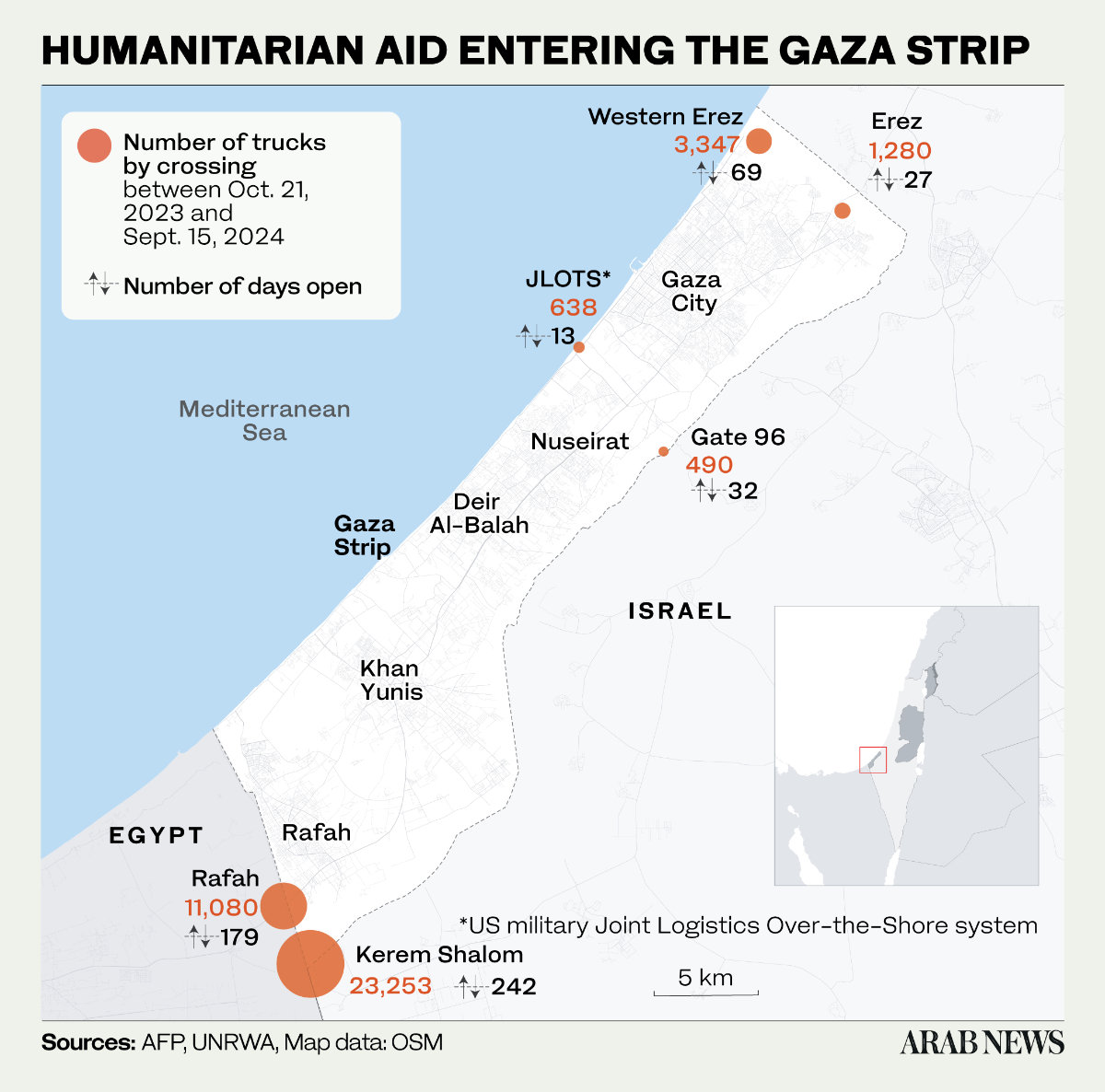
For Gaza, which is on the verge of famine after a 13-month onslaught from Israel that has killed nearly 44,000 people, the outcomes are unthinkable.
On Oct. 28, the Israeli parliament passed two laws by overwhelming majority that will make it impossible for UNRWA to continue its work in the Israeli-occupied Palestinian territories.
The first law barred UNRWA from operating in Israeli territory while the second prohibited Israeli authorities from engaging with the agency in any form.
The bills, set to take effect within 90 days of their adoption, did not provide an alternative organization to UNRWA for delivering aid or essential services.
Over a series of press conferences, briefings and statements, Philippe Lazzarini, the UNRWA commissioner-general, has become increasingly exasperated as he pleads with other nations to put pressure on Israel to halt the action.
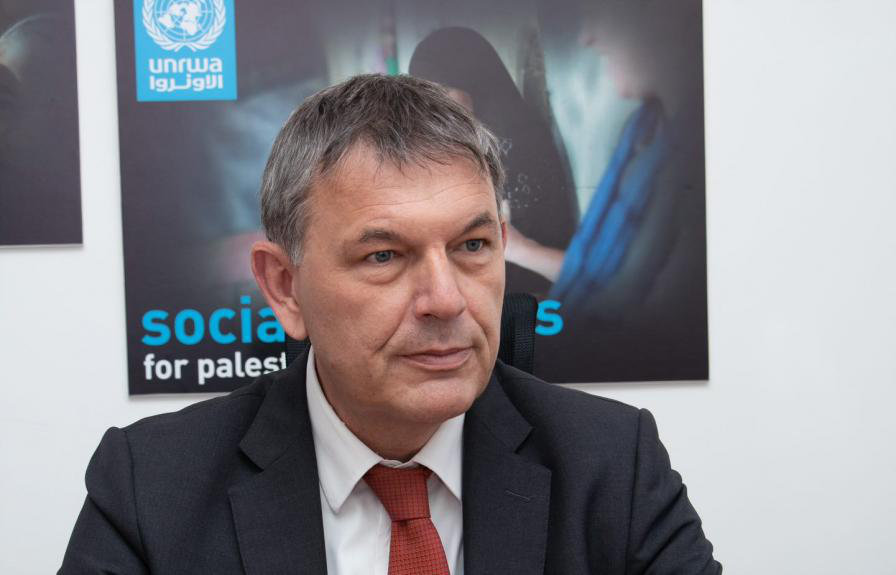
UNRWA Commissioner-General Philippe Lazzarini. (Supplied)
He says not only will the collapse of his agency have devastating humanitarian consequences for Palestinians, but also removing services like education will fuel radicalization and have a destabilizing effect on the Middle East.
Lazzarini argues that such a step by a UN member state against a UN agency would also significantly undermine the international rules-based order that those members signed up to.
Shortly after the Israeli parliament, or Knesset, passed the bills, he warned that the vote “sets a dangerous precedent.”
DID YOUKNOW?
• 2.1 million Palestinians in Gaza depend on aid from UNRWA.
• 600,000 Children in Gaza receive education through UNRWA.
• 17,000 UNRWA staff in the occupied Palestinian territories.
(Source: UNRWA)
“It opposes the UN Charter and violates the State of Israel’s obligations under international law,” he said.
Agnes Callamard, Amnesty International’s secretary-general, slammed the vote as an “unconscionable law” and “an outright attack on the rights of Palestinian refugees.”
UNRWA was established by a UN General Assembly resolution in response to the ethnic cleansing of Palestinians from their land in 1948, which led to the formation of the Israeli state. In what became known as the Nakba, meaning catastrophe, 700,000 people were driven from their homes.
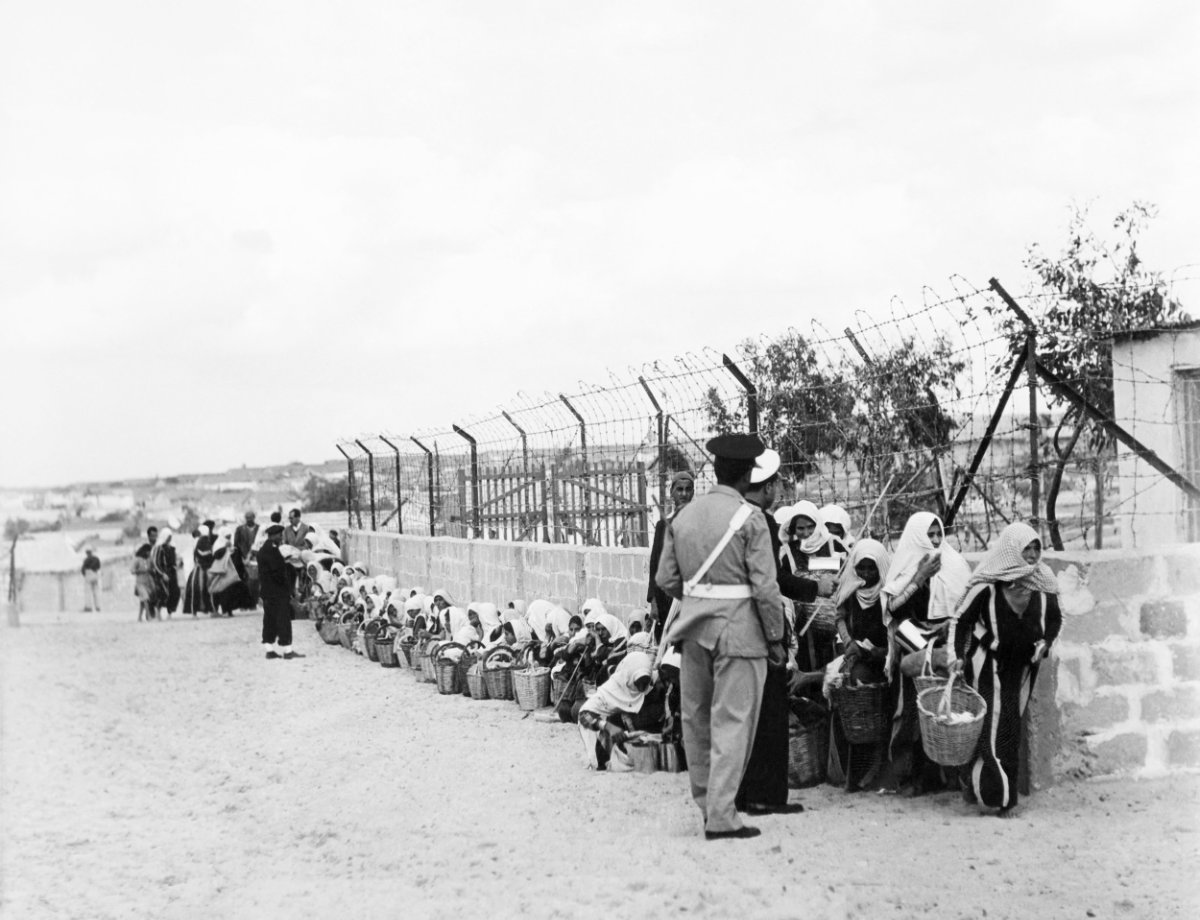
Palestinian refugees queue for food distributed by the UNRWA at a camp in Gaza on November 9, 1956. (AFP)
The agency was tasked with helping refugees scattered across Gaza, the West Bank, Lebanon, Jordan and Syria until they could return home. With no “right of return” solution ever reached with Israel, UNRWA’s work has continued, providing many services in lieu of a functioning government.
Yet despite the agency’s work, it has always faced criticism from Israel. One of the main charges against UNRWA is that it perpetuates the Palestinian refugee issue by keeping alive the notion of a “right of return” passed down through generations — something Israel views as unrealistic and unimaginable.
Palestinians believe that without the agency, their status as refugees would be undermined and they fear they would be pressured into settling wherever they have ended up.
Lazzarini said on Monday that Israel’s aim in attacking UNRWA was to strip Palestinians of their refugee status. But he insisted that whether his agency existed or not, their refugee status would be protected by UN General Assembly resolutions.

A right-wing Israeli protesters demonstrate in front of the UNRWA office in Jerusalem on March 20, 2024. (AFP)
In recent years, Israel has increasingly accused the agency of employing Hamas members and other militants among its 13,000-strong Gaza workforce.
Hamas has been in power since seizing the territory from Palestinian rivals Fatah in 2007 and UNRWA has had to tread a fine line between the militant group and Israel.
It comes under pressure from both sides about the curriculum taught in its schools or whether it is showing bias toward one side or the other.
In late January, Israeli authorities accused several UNRWA employees of involvement in the Oct. 7 Hamas attack on southern Israel, which killed 1,200 people and resulted in the capture of 250 hostages.
The UN secretary-general ordered an investigation which reported in August that nine staff members may have been involved in the attacks. UNRWA fired the employees but said it had supplied full lists of the people it employs since 2011.

Israeli protesters demonstrate in front of the UNRWA office in Jerusalem on March 20, 2024. (AFP)
Many Western countries suspended their funding for UNRWA while the investigation was carried out, a major blow given the agency’s budget is almost entirely funded by donations from UN member states. All except the US have since reinstated the money.
An independent review of the agency published in April said UNRWA had a “robust” framework to deal with neutrality but that issues such as staff publicly expressing political views and textbooks with problematic content being used in some UNRWA schools persisted.
Nevertheless, the level to which UNRWA is entwined with the fabric of Palestinian society means that removing its services would leave a huge gap in how the territories function.
Of most immediate concern, the Israeli legislation would remove desperately needed aid and health care from Gaza.
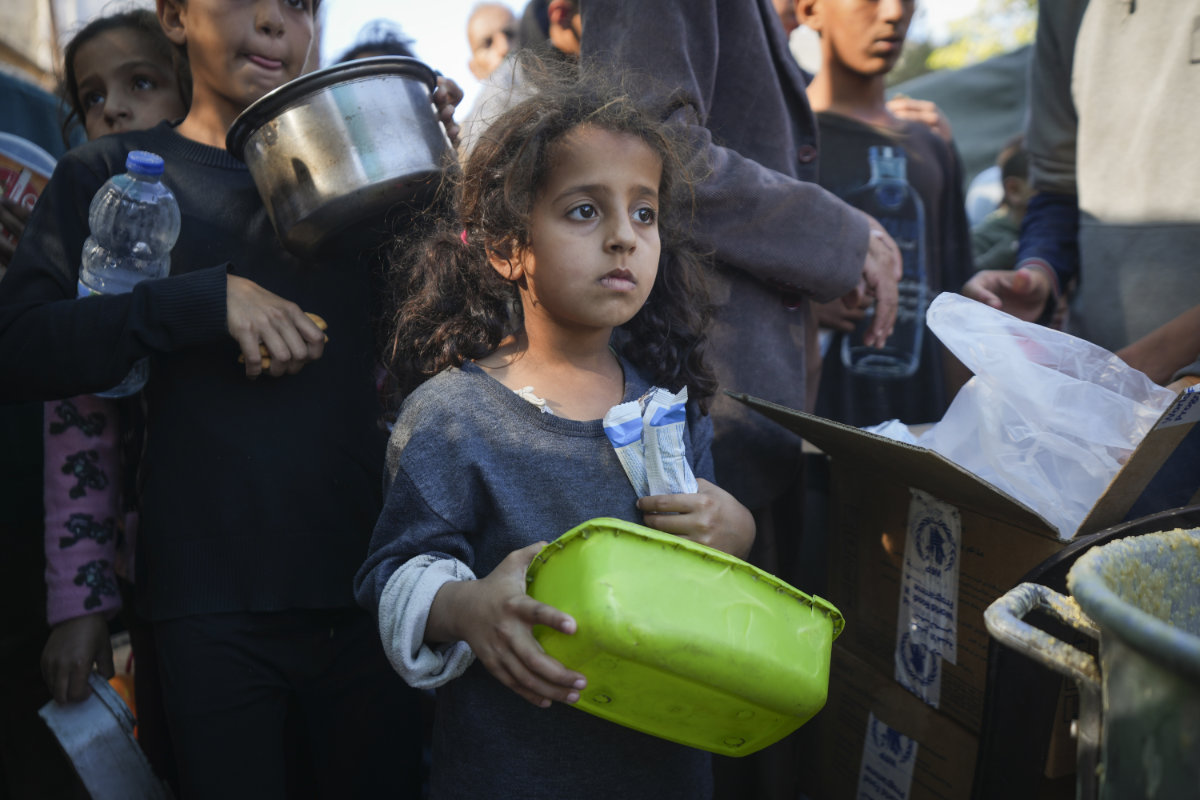
Palestinian children queue for food in Deir al-Balah, Gaza Strip, on Nov. 18, 2024. (AP)
In a statement on X after the vote, Lazzarini described the laws as “nothing less than collective punishment” that will “only deepen the suffering of Palestinians, especially in Gaza where people have been going through more than a year of sheer hell.”
More than 2 million people in Gaza have endured relentless Israeli bombing and a deepening humanitarian crisis since the war started. The population is fully dependent on the aid allowed into the territory by Israel. Families suffer severe shortages of food, clean water, medical supplies and shelter.
The bombing and military operations destroyed essential infrastructure, razed entire districts and displaced almost the entire population. Along with the tens of thousands killed, mostly women and children, more than 100,000 have been injured, according to Gaza’s health authority.
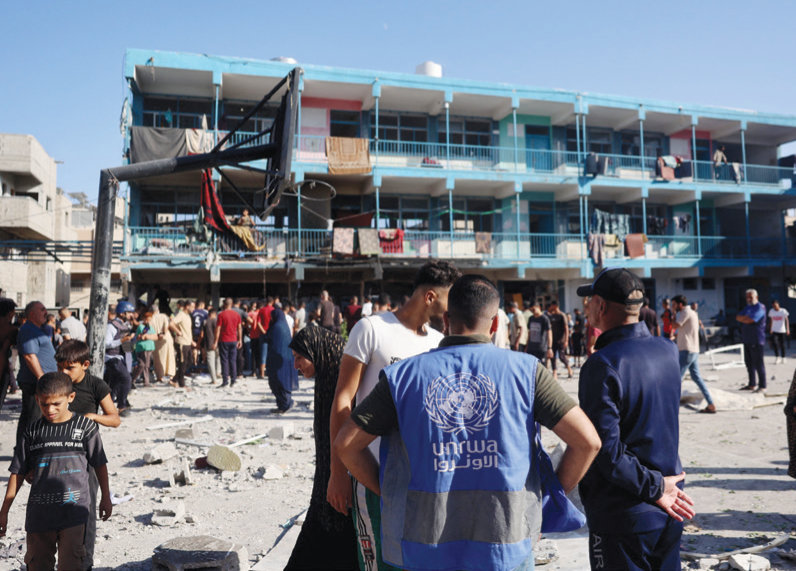
Over two-thirds of UNRWA’s premises in Gaza have been damaged or destroyed by Israeli strikes. (AFP)
An UNRWA spokesperson told Arab News that without the agency “the delivery of food, shelter, and health care to most of Gaza’s population would grind to a halt.”
A joint statement by 15 UN and humanitarian organizations on Nov. 1 warned that the legislation against UNRWA would be a “catastrophe” for the aid response in Gaza where “there is no alternative to UNRWA.”
Indeed, relief groups have repeatedly accused Israeli authorities of aid obstruction. While Israel has denied this, data analysis by aid organizations operating in Gaza found that 83 percent of food aid does not make it into the enclave.
Jens Laerke, spokesperson for UN humanitarian agency OCHA, told a UN briefing in Geneva in mid-November that aid access across Gaza has been “at a low point.”
“Chaos suffering, despair, death, destruction, displacement is at a high point,” he said, adding that delivering assistance in northern Gaza was “near impossible.”
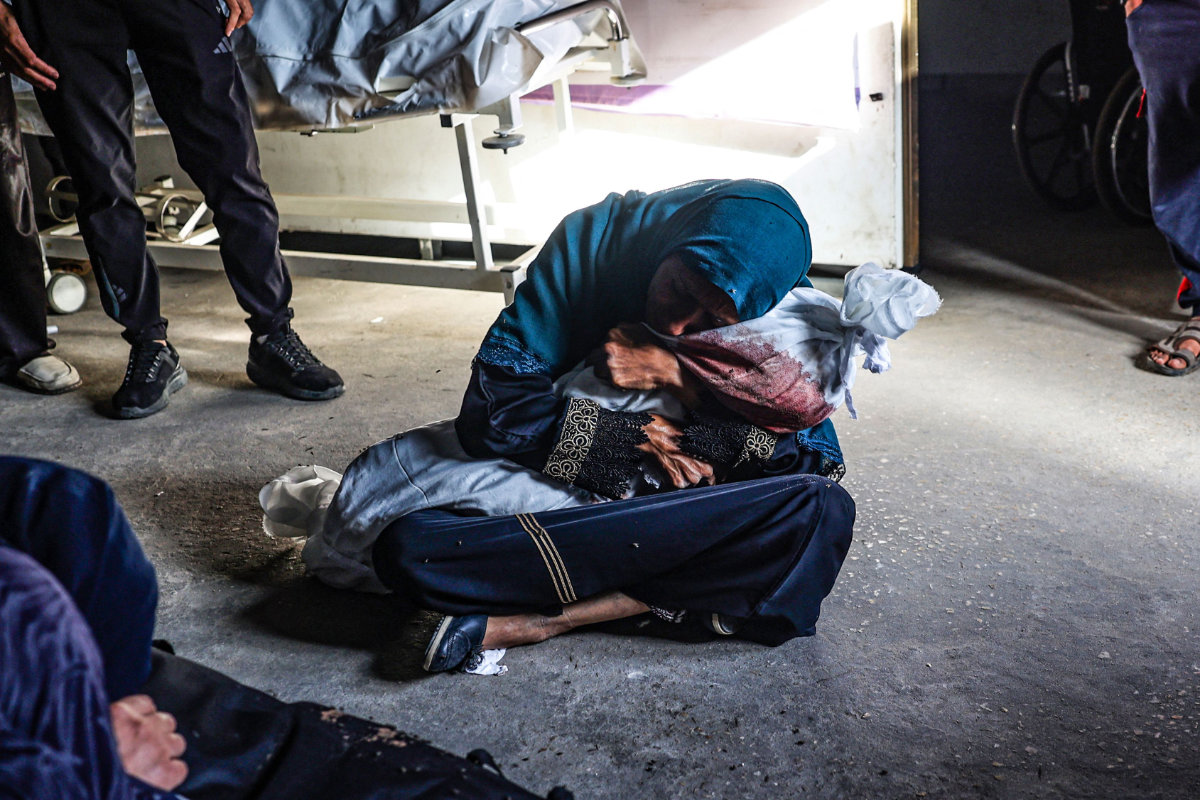
A Palestinian woman holds the shrouded body of child killed in Israeli bombardment, at a health clinic in the area of Tel al-Sultan in Rafah, in the southern Gaza Strip on May 26, 2024. (AFP)
The ramifications of the new laws will extend beyond Gaza, across the entire occupied Palestinian territories.
“In the West Bank, including East Jerusalem, without UNRWA, health, education and social services to Palestine refugees would fall apart,” the UNRWA spokesperson said.
Addressing a UN General Assembly committee last week, Lazzarini warned the risk of UNRWA’s collapse “threatens the lives and futures of individuals and communities.”
UNRWA delivers education to more than 660,000 children across Gaza and at least 50,000 in the West Bank. If the agency's work stops, “an entire generation will be denied the right to education,” Lazzarini added: “Their future will be sacrificed, sowing the seeds for marginalization and extremism.”
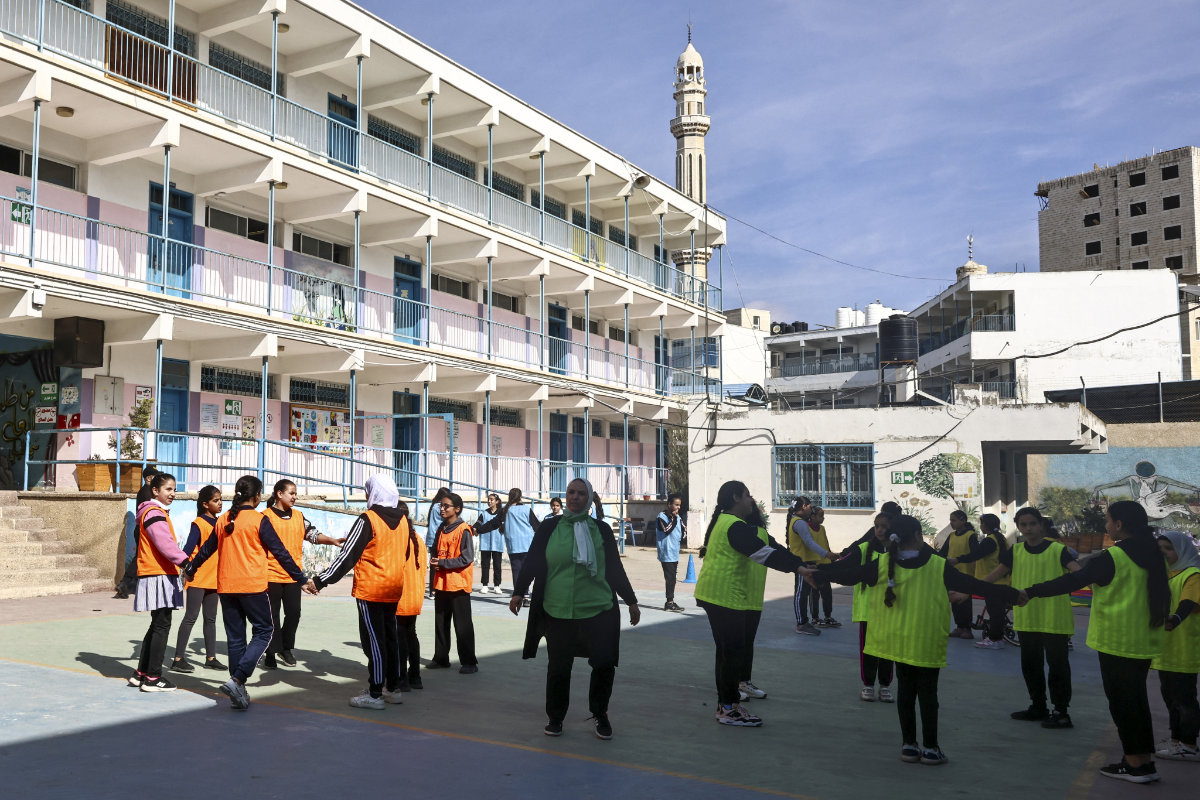
Palestinian children play at UNRWA-run school in the Qalandia refugee camp in the occupied West Bank on Nov. 14, 2024. (AFP)
The agency provides health care services to half a million Palestinian refugees, covering 70-80 percent of needs in Gaza before the war.
Banning UNRWA would also put at risk the jobs of 17,000 employees in Gaza and the West Bank.
More than 240 UNRWA personnel have already been killed in the Gaza war and others have been detained and tortured.
UNRWA is a “casualty” of the Gaza war and “not a party” to the Israel-Palestine conflict, Lazzarini said.
“Palestinian armed groups, including Hamas, and Israeli forces have allegedly used our premises for military purposes,” he added.
Opinion
This section contains relevant reference points, placed in (Opinion field)
Away from Gaza, concern is growing that the demise of UNRWA would erode the refugee status of Palestinians, further weakening their cause.
The non-governmental organization Medical Aid for Palestinians warned that discrediting UNRWA “undermined the international legal framework protecting their (Palestinian refugees) rights, including the right of return.”
Rafe Jabari, a researcher on the political sociology of Arab states, told Arab News that UNRWA plays a critical role in “keeping the refugee question on track” while providing the international community with essential data and insights on the situation in Gaza.
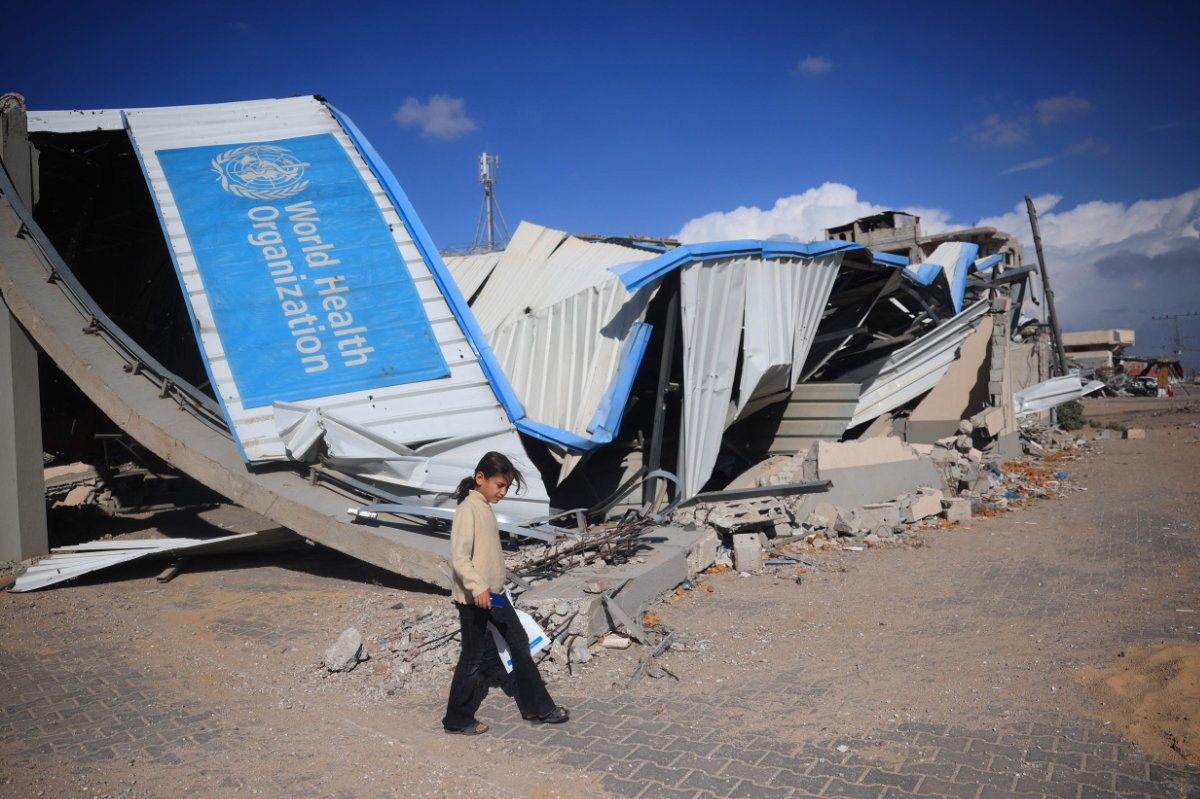
A Palestinian girl walks past a World Health Organization (WHO) storage center destroyed in a recent Israeli bombardment in Khan Yunis in the southern Gaza Strip on Nov. 19, 2024. (AFP)
Israeli officials have “banned the entry of international journalists” into Gaza and “are now attacking the most important, neutral, and impartial organization (UNRWA),” he said.
“By eliminating this important source of information, the Israelis aim to obscure their practices and policies on the ground, undermining the credibility of other sources and, in turn, denying the outcomes of their actions.”
Despite the widespread concern over UNRWA’s future, there is no sign that Israel may be willing to halt the ban and little detail on how its work could be replaced.
“UNRWA may be defined by a single word — failure,” Israel’s UN Ambassador Danny Danon told a meeting of the General Assembly on UNRWA earlier this month. “This idea that UNRWA could not be supplemented is absurd.”
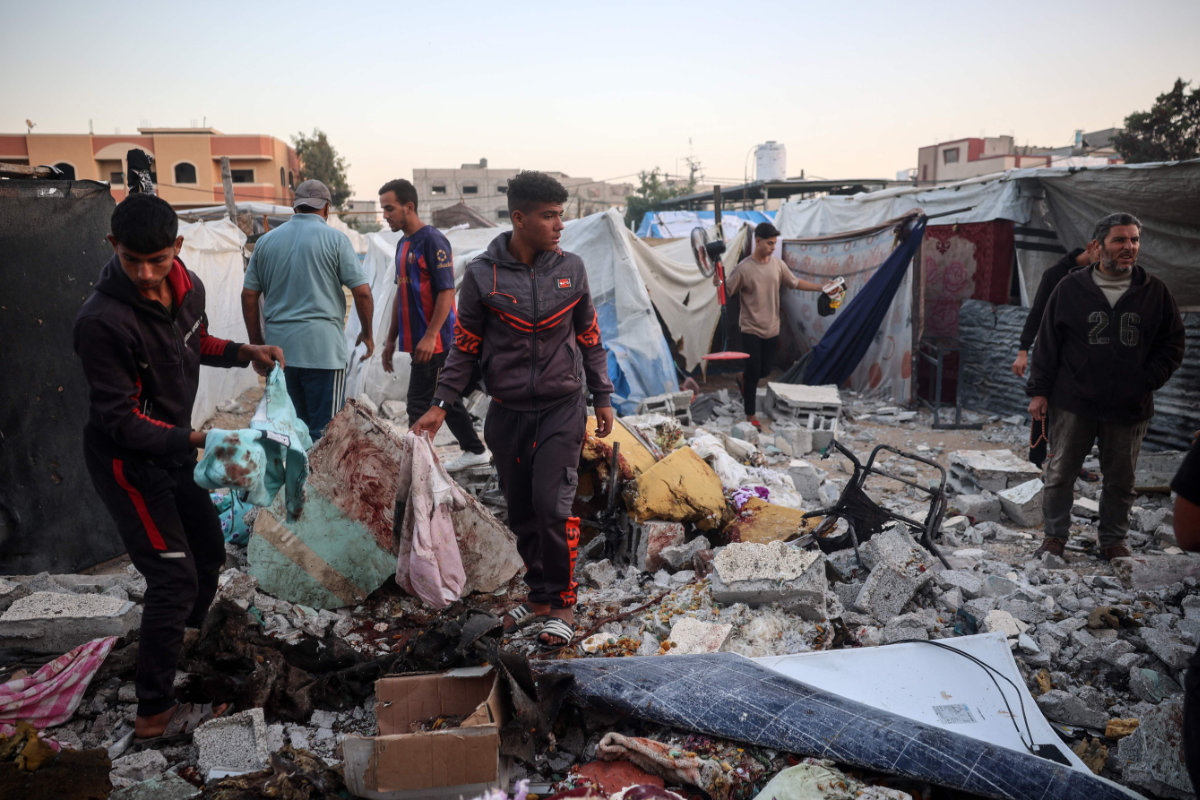
Displaced Palestinians walk amid blood-stained rubble following an Israeli strike that hit a UN-run school where people had taken refuge, in the Nusseirat refugee camp in the central Gaza Strip on Nov, 20, 2024. (AFP)
Yet, as the clock ticks toward the ban being enforced, the warnings from the UN grow even louder, with officials saying Israel will have to step in when UNRWA is no longer operating.
Speaking in Geneva on Monday, Lazzarini said while there was no functioning state or institutions for Palestinians, then the role of UNRWA was “irreplaceable.”
“There is no Plan B,” he said.
































